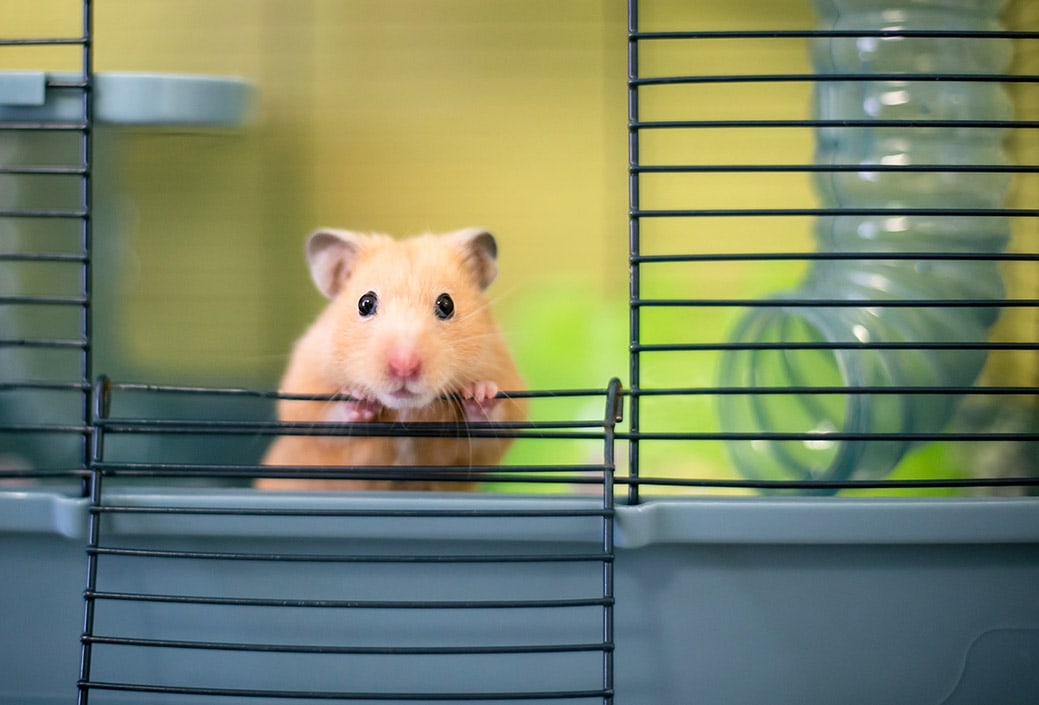
Any hamster owner knows how delicate their beloved little pet can be. A sudden noise or abrupt movement can send them into a state of intense fear and stress. While some hamsters may appear to die from stress, it is much more likely that these critters were suffering from underlying health problems that contributed to their death. Cardiomyopathy is a heart muscle disease that is common in hamsters and can lead to sudden death.
In this article, we discuss the impacts and potential dangers of stress on hamsters and what you can do to help keep your adorable pocket pet more relaxed.
What Is Stress?
The World Health Organization defines stress as “a state of worry or mental tension caused by a difficult situation.” Stress is a human concept. In animals stress may refer to their experience of anxiety or inadequate husbandry.

How Does Stress Affect Hamsters?
Stress can worsen existing health issues, such as cardiomyopathy Numerous sudden hamster deaths have been attributed to this disease of the heart muscle. One study has shown that chronic stress in hamsters with cardiomyopathy accelerated the cardiovascular aging process, which suggested that severe stress brought these hamsters nearer to death.1
In dogs it is known that chronic anxiety activates the immune system which in turn affects behavior. It is also known that gut health and brain health are closely linked by something called the gut-brain-axis. Anxiety sometimes leads to symptoms of gastrointestinal upset. These links are well known in humans and it is possible that they also exist for hamsters although studies are limited.
What Causes Stress in Hamsters?
According to the Merck Veterinary Manual, common stressors in hamsters include overcrowding, high ambient temperature and humidity, parasites, and poor diet.2 Stress can also be caused by changes in the environment, inappropriate or too frequent handling, loud noises, sudden fluctuations in temperature, and even the presence of other animals. These stressors can trigger a hormonal and neurological response that affects your hamster’s overall health.

Tips for Keeping Your Hamster Stress-Free
Maintaining a stress-free environment for your hamster is easier said than done. However, since stress can lead to many serious health issues for your little friend or even death, you must do your best to create a safe and peaceful environment for them:
Final Thoughts
Stress isn’t an illness itself, but rather a state that can impact your hamster’s health and quality of life.
That said, it can be difficult to tell if a hamster is stressed because animals don’t show distress the way that humans do. However, certain signs can give you a clue, such as if your hamster refuses to eat, seems listless, grooms excessively, or tries to bite you.
If you think that your hamster is anxious due to an underlying health issue, the best course of action is to visit your veterinarian to have your beloved little friend checked out.
Featured Image Credit: Dario Stankovic, Shutterstock










